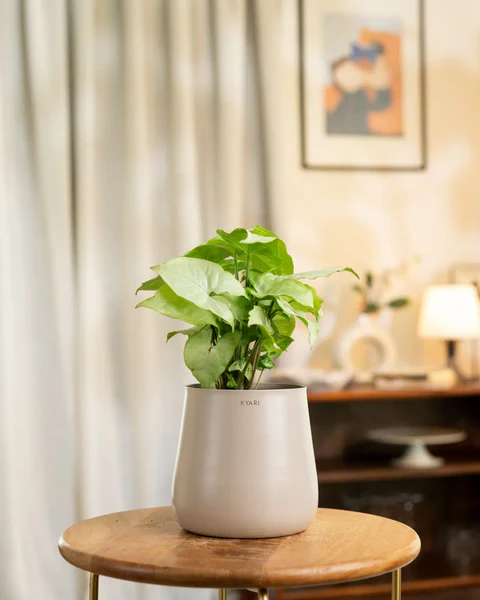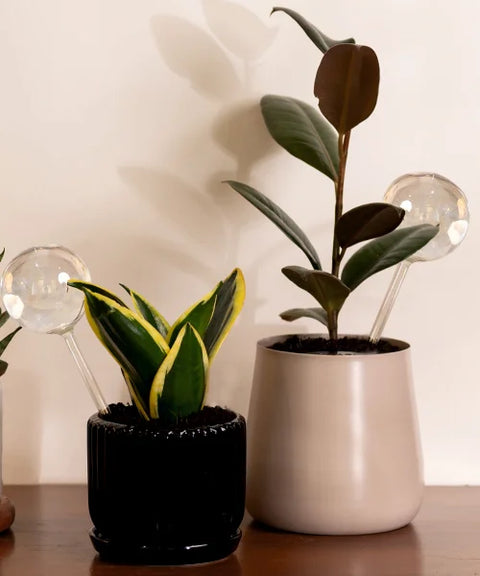About
Syngonium Pixie White
The Syngonium Pixie White is a striking houseplant known for its unique white and green variegated leaves. This compact plant adds a touch of elegance to any indoor space and is relatively easy to care for, making it a favorite among both novice and experienced plant enthusiasts.
Origin
Native to the tropical rainforests of Central and South America.
Light
Prefers bright indirect light but can tolerate low light conditions. Avoid direct sunlight as it can scorch the leaves.

Water
Water when the top inch of soil feels dry. Syngonium plants prefer evenly moist soil but are susceptible to root rot if overwatered.
Humidity
Thrives in average household humidity but appreciates occasional misting for optimal growth.
The Syngonium Pixie White is sometimes called the "Arrowhead Plant" because of the arrow-like shape of its leaves. Interestingly, the leaves change shape as they mature, showcasing its dynamic nature
Placement
The Syngonium Pixie White adds beauty and purifies the air. Here’s where to place it
Adds elegance and improves air quality. Position near a window with indirect light to showcase its unique leaves.
Enhances focus and reduces stress. The presence of a Syngonium can create a serene workspace.
Promotes a restful sleep environment by purifying the air. A Syngonium in the bedroom can help create a calming atmosphere.
Frequently Asked Questions
The ideal temperature is between 60°F to 80°F (16°C to 27°C). It prefers warm stable conditions and should be protected from cold drafts.
Water when the top inch of soil feels dry. Adjust frequency based on light exposure and indoor climate to keep the soil evenly moist.
It prefers bright indirect light but can tolerate low light conditions. Avoid direct sunlight to prevent leaf burn.
Trim off any dead or yellowing leaves and ensure the plant is free from dust to maintain its health.
Yellowing leaves can indicate overwatering or poor drainage. Improve drainage and reduce watering frequency.
Brown leaf edges can indicate low humidity or underwatering. Increase humidity and ensure consistent watering.
Drooping leaves may result from underwatering or overwatering. Adjust the watering schedule to maintain consistent moisture.


































 Apply Discount at Checkout
Apply Discount at Checkout 

























































































